Ken Burns, A Supreme Court Justice, and the Community You’ve Been Craving
Plus: Putin Wins Alaska
Together with:
Yesterday, we gave you a behind-the-scenes look at Governerds Insider—what it feels like to be part of a community built on curiosity, clarity, and meaningful connection.
Today, enrollment is officially open.
If you already know you want in, click here to join. We expect spots to go quickly.
Here’s why: Over 90% of our members renew every season. That means most spots are already claimed—and only a limited number are available for new members.
If you’re on the fence, here’s the short version:
Governerds Insider is where we read remarkable books, host live conversations with the authors, and build a smart, welcoming community of people who want to understand the world—together.
This season’s guests include:
Ken Burns (yes, that Ken Burns)
Justice Amy Coney Barrett (with a signed bookplate for members who preorder)
Suleika Jaouad, Kevin Sack, Jemar Tisby, Jermaine Fowler, Amber Johnston-O’Neal, and Casey Burgat
Membership includes:
Live Zooms, author Q&As, watch parties, and workshops
A private chat thread and ongoing conversations with fellow members
Historic deep dives that bring context and meaning to what’s happening now
A place to feel smarter, calmer, and more connected in the middle of the chaos
If you’ve been craving depth, clarity, and good company—this is your room.
Spots are limited, and enrollment won’t be open long.
Click here to join Governerds Insider
Now, back to your regularly scheduled programming.
Putin Wins Alaska
by Elise Labott
Vladimir Putin achieved something on Friday that two decades of military aggression, election interference, and diplomatic isolation couldn't accomplish: he got an American president to publicly abandon his closest allies and embrace Russian negotiating terms.
Trump’s summit with Putin in Alaska wasn't just the first meeting between a US and a Russian president in over four years — it was a master class in how authoritarian leaders exploit democratic divisions to shatter Western unity.
Within 48 hours of leaving Joint Base Elmendorf-Richardson, Putin had successfully maneuvered Trump into setting aside the carefully coordinated Western position on Ukraine negotiations. The transformation was so swift and complete that European leaders found themselves scrambling to do damage control.
By Sunday, British Prime Minister Keir Starmer, French President Emmanuel Macron, and German Chancellor Friedrich Merz were all clearing their schedules to accompany Ukrainian President Volodymyr Zelensky to Washington, DC, for a Monday meeting with Trump — the kind of all-hands-on-deck diplomatic intervention you deploy when your most important ally has just been outmaneuvered.
The symbolic victory
Alaska, a former Russian territory sold to America in 1867 for $7.2 million, provided the perfect backdrop for Putin's message: borders change, great powers negotiate, and smaller countries live with the consequences. By the time his plane touched down to a red carpet reception complete with a B-2 bomber flyover, Putin had already achieved an important objective — demonstrating that Russia remained a power worthy of presidential summits in the US. For a leader branded a war criminal by the International Criminal Court, it was rehabilitation on the grandest possible stage.
But Putin's real masterstroke wasn't about symbolism — it was psychological. As Fiona Hill, Trump's former Russia adviser, observed, Putin "knows that President Trump wants to have an acknowledgement of his self-assertion that the war wouldn't have happened had he been in the presidency."
So Putin delivered exactly that validation, confirming that the war would never have started under Trump's leadership — a claim Trump echoed on Monday, seated beside Zelensky, when he said the conflict was “Joe Biden’s war.” When Trump and his special envoy Steve Witkoff briefed European leaders on what had transpired behind closed doors in Alaska, it became clear how audacious Putin’s wish list was.
Putin demanded that Ukraine cede two entire regions — Donetsk and Luhansk, which together make up the Donbas — including territory that Russia doesn't even currently control. While Russia holds nearly all of Luhansk, it controls only about three-quarters of Donetsk. Putin's offer was to freeze fighting in Kherson and Zaporizhzhia regions in exchange for Ukraine's complete withdrawal from Donetsk — presenting as a concession what was really just an acknowledgment that Russian forces haven't made progress in those areas for months.
Even more audaciously, Putin requested that the United States formally recognize Russian sovereignty over whatever Ukrainian territory Moscow gains under any deal. My sources say President Trump rejected Putin’s request.
And Putin mentioned China as a potential security guarantor for Ukraine, revealing the breadth of his strategic thinking. By suggesting that Beijing could help police any agreement, Putin was simultaneously undermining the West’s potential role and positioning China as an equal power broker in European security — exactly the kind of multipolar world order that both Moscow and Beijing prefer.
The division strategy
Putin's ultimate goal has always been larger than Ukraine — it's the destruction of the Western alliance that has contained Russian power since 1949. The Alaska summit provided the perfect opportunity to drive wedges between America and Europe, and Putin exploited it brilliantly. He even warned Europe in his remarks with Trump after the meeting not to “torpedo” the points he and Trump agreed on.
Standing next to Putin, Trump appeared to have abandoned the principles he and European leaders had accepted just days earlier: Ukraine always at the negotiating table, real security guarantees for Ukraine, continued pressure on Russia, and a ceasefire before territorial discussions. Trump emerged from Alaska singing Putin's tune about moving directly to a "peace agreement" without stopping the fighting — essentially giving Russia permission to keep bombing Ukrainian civilians during negotiations.
It was an astounding reversal from Trump's pre-summit ultimatum demanding Russia agree to a ceasefire or face new sanctions. The reality became clearer on Monday, when Trump said he would "obviously prefer an immediate ceasefire" but admitted that, "as of this moment, it's not happening" — a tacit admission that Putin had simply refused his central demand.
By Sunday night, Trump was even placing the burden of ending the war squarely on Ukraine's shoulders. In a Truth Social post, he declared: "President Zelenskyy of Ukraine can end the war with Russia almost immediately, if he wants to, or he can continue to fight. Remember how it started. No getting back Obama given Crimea (12 years ago, without a shot being fired!), and NO GOING INTO NATO BY UKRAINE. Some things never change!!!"
This wasn't just a policy shift — it was a strategic realignment that placed Trump closer to Moscow's position than to that of America's closest allies. European leaders had spent the week carefully coordinating with Trump, establishing clear red lines and unified messaging. Putin shattered that coordination in a single afternoon.
What makes Putin's Alaska success even more dismaying is that it came at a moment when Russia was under severe pressure. Reports suggest Russian cash reserves are dangerously low. Moscow is struggling to recruit soldiers, as evidenced by its reliance on North Korean troops at the frontlines. Russia's economy is smaller than California's, and Russian officials had to pay cash for jet fuel to fly to Alaska because of existing sanctions that prohibit the use of the US banking system. Yet somehow Putin left Alaska looking like the victor.
The Monday reckoning
The emergency response from European leaders revealed just how badly Putin had fractured Western unity. European diplomats I spoke to described a sense of panic reminiscent of the Iraq War. Their foremost concern was preventing another scene like Trump's February berating of Zelensky, where the American president told the Ukrainian leader, "You don't have the cards" and essentially demanded that Ukraine capitulate to Russian power. Secretary of State Marco Rubio's insistence that European leaders weren't coming to Washington this time "to keep Zelensky from getting bullied" only underscored how completely Putin had succeeded in his divide-and-conquer strategy.
As European leaders prepared to descend on Washington for a diplomatic intervention, they faced a delicate balancing act: how to help Trump save face while preventing him from making Ukraine pay the price for his Alaska miscalculation? They needed to convince him that Putin's promises are tactical deceptions designed to buy time for military advances, not genuine peace overtures.
Whether they succeeded remains to be seen. On the surface, Zelensky did his best to shore up his relationship with Trump. Wearing a dark suit instead of his usual military clothing, which Trump had made fun of when the two leaders met in February, Zelensky had clearly learned from his last visit. He was deferential and supportive, offering warm words about Trump's peace efforts.
"We supported the idea of the United States — personally of President Trump — to end this war, to find a diplomatic way to do so," Zelensky said, in a sharp contrast with the confrontational tone of their previous encounter.
Trump seemed pleased with the change in tone and struck an optimistic note. "We have people waiting in another room right now. They are all here from Europe — biggest people in Europe — and they want to give protection [to Ukraine]. They feel very strongly about it, and we'll help them out with that. I think it's very important to get the deal done," he said.
From Ground News:
Was the historic meeting in Alaska between Presidents Trump and Putin a success or a failure? You might get a different answer depending on where you get your news.
With over 130 sources covering this story, Ground News is the most practical solution to exposing spin before we mistake it for fact.
Preamble readers regularly ask: how can we tell if a news source is trustworthy? Ground News has an app and website that pulls in every perspective on the most polarizing issues, then breaks down each source’s political bias, factuality, and ownership so you understand where your info is coming from.
Their Headline Comparison feature allows you to see headlines about the same story side by side and exposes how much our perspective is shaped by selective reporting from partisan outlets we mistake as “unbiased.”
Ground News is independent and funded by readers like us. And now, Preamble readers get 40% off the same unlimited access Vantage plan I use.
Subscribe now at ground.news/preamble for just $5/month.
When the meeting expanded to include the full European delegation in the East Room, the careful choreography gave way to more pointed exchanges. European leaders pressed Trump publicly on security guarantees, with NATO Secretary General Mark Rutte telling Trump: "The fact that you have said that I'm willing to participate in the security guarantees is a big step. It's really a breakthrough. And it makes all the difference… Thank you for that."
Yet European leaders also pushed back on Trump's abandonment of ceasefire demands. German Chancellor Friedrich Merz was direct: "The next steps ahead are the more complicated ones now... To be honest, we all would like to see a ceasefire." Merz made clear he couldn't imagine a trilateral meeting occurring without a ceasefire in place — a direct challenge to Trump's new Putin-aligned position.
Both Trump and Zelensky expressed openness to the trilateral summit with Putin that had been discussed since Alaska, with Trump claiming he was already making arrangements for Putin and Zelensky to meet first.
The alliance at risk
But whatever may come next, damage has already been done. Putin understands that American power depends not just on military might or economic strength, but on the perception that America keeps its word to its friends. His long-term strategy has always been to demonstrate that when pressure mounts, Americans will abandon their principles and their partners in pursuit of deal-making glory. The Alaska summit provided compelling evidence for that thesis. By getting Trump to reverse course so quickly and completely, Putin has planted seeds of doubt about American reliability that could undermine Western cohesion for years.
The summit also sends a dangerous message to other authoritarian leaders: American commitments are negotiable, Western unity is fragile, and patient manipulation can achieve what military confrontation cannot.
The coming weeks will determine how much Ukraine and the Western alliance can recover from Putin's Alaska triumph. For now, Russian bombardment of Ukrainian cities — killing at least ten people including a child even as diplomatic discussions continued — serves as Putin's reminder that, whatever Trump might wish for, the war is continuing on Russian terms.






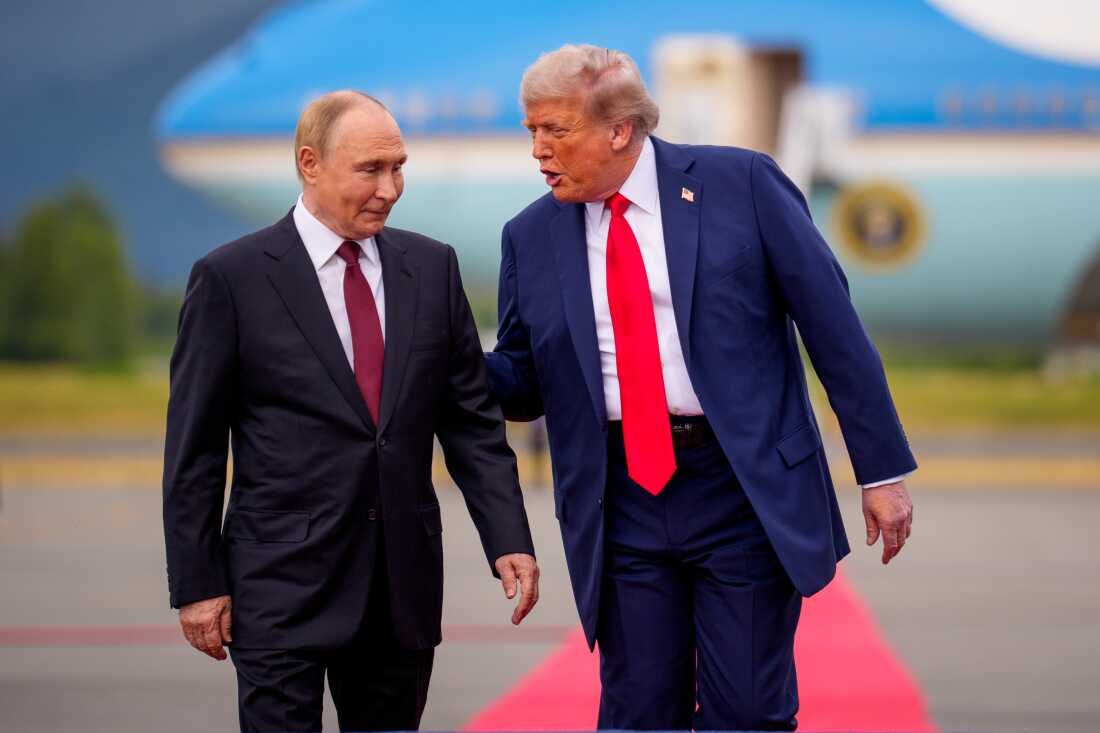
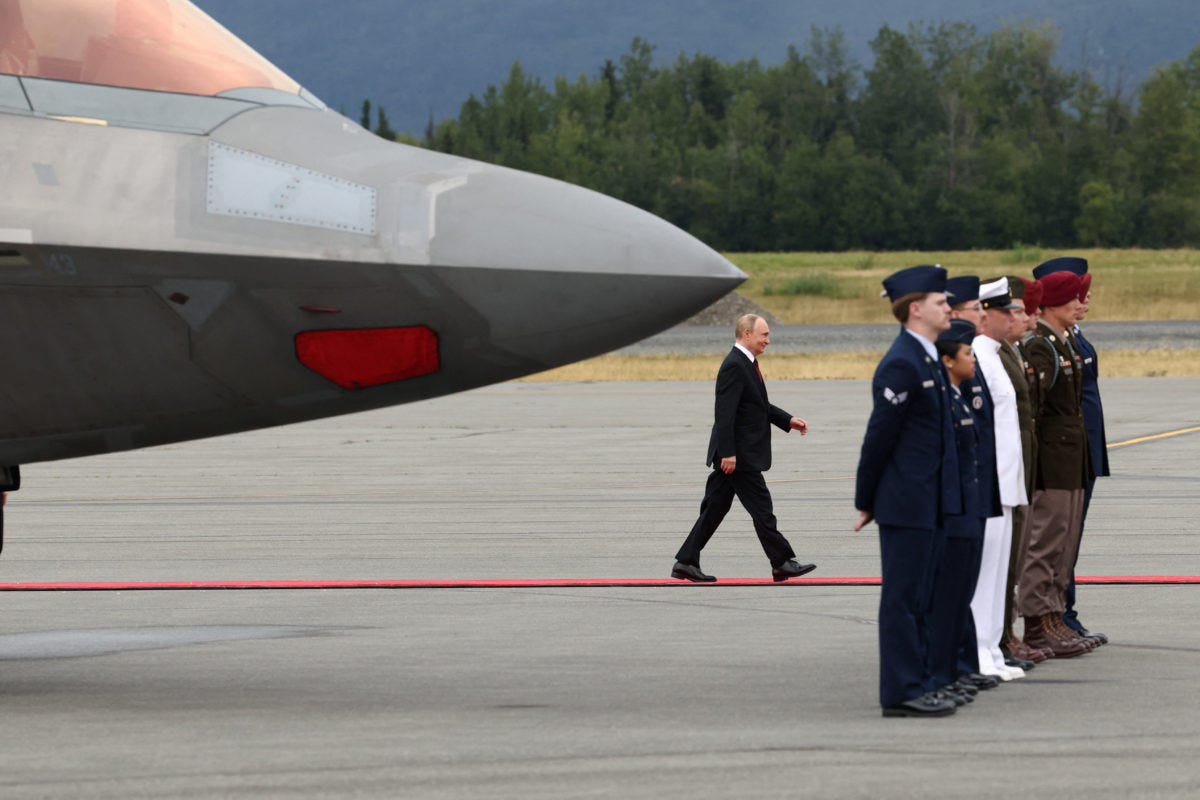
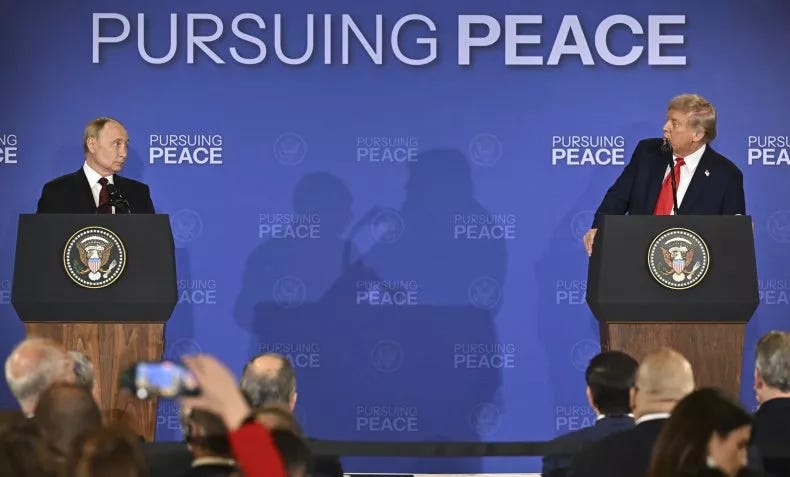
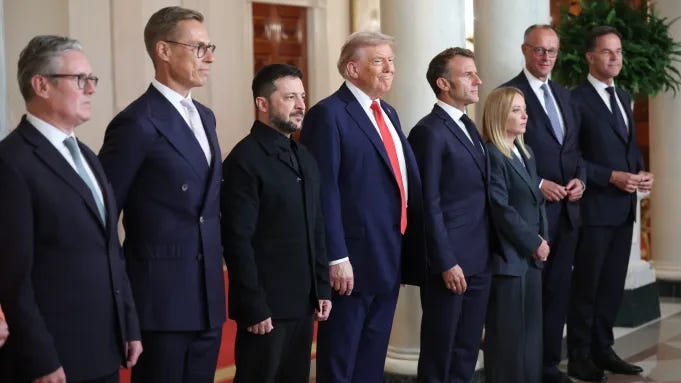
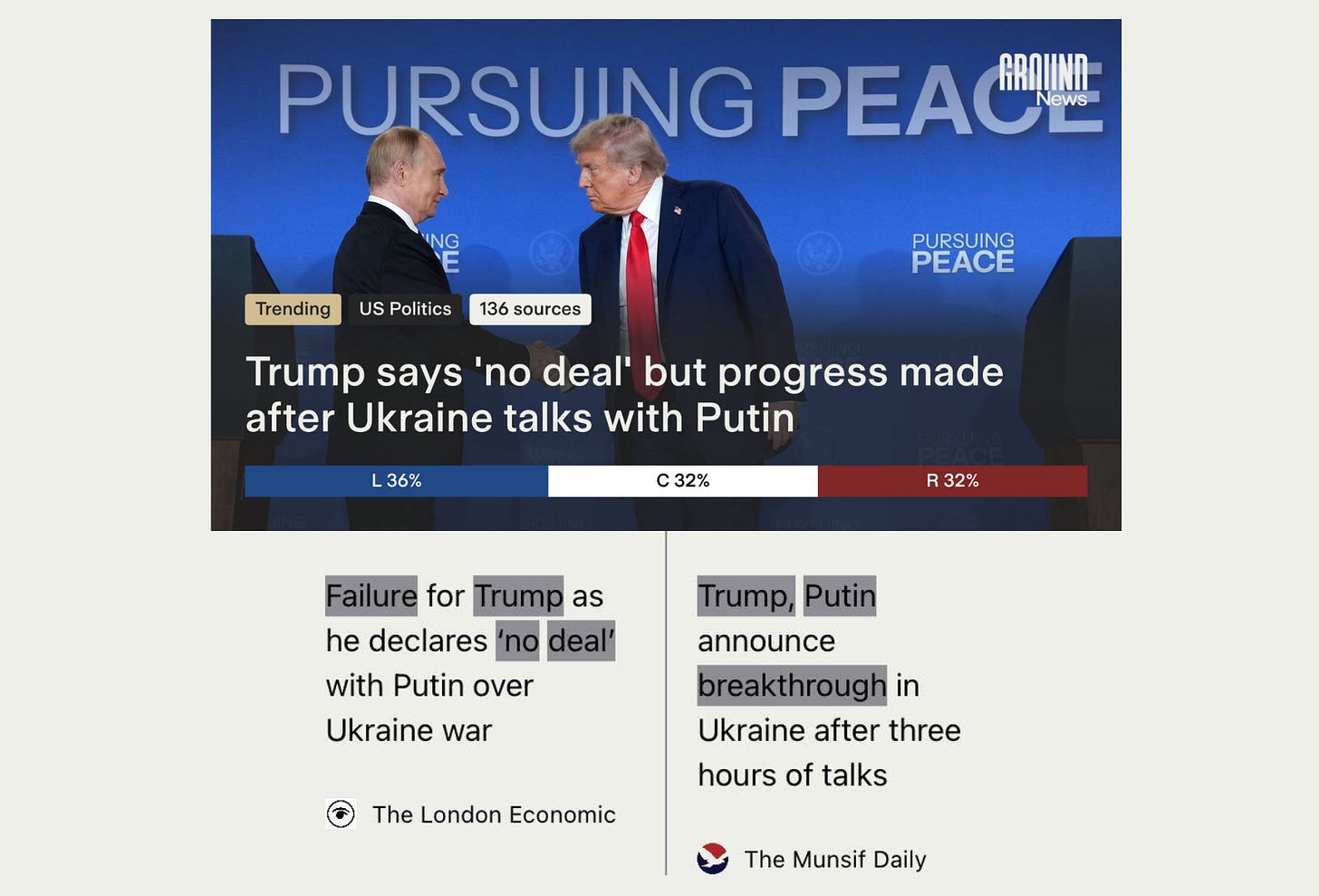
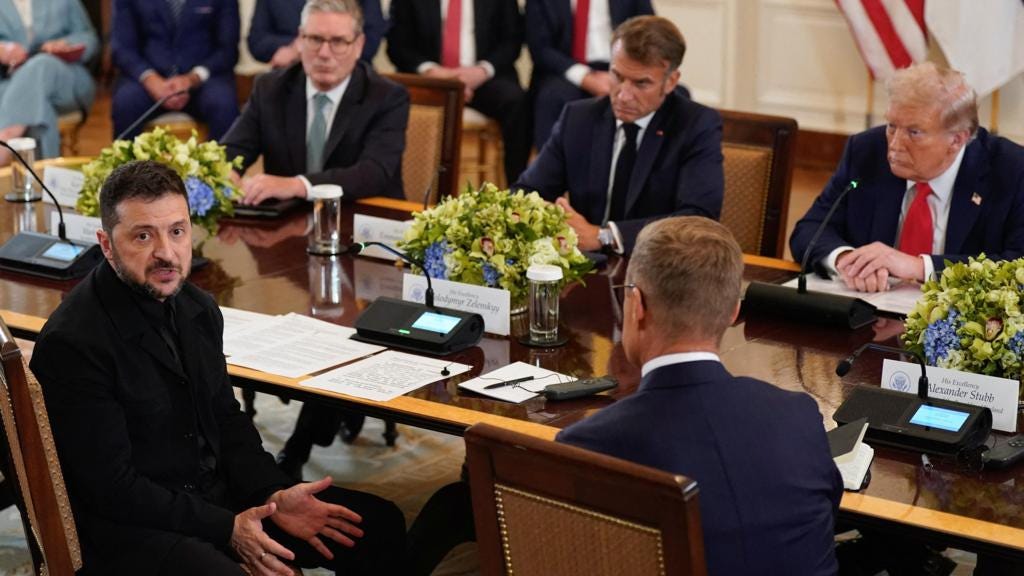

It’s embarrassing that it is so obvious that the way to manipulate Trump is by stroking his ego. And that he is so easily manipulated! We cannot trust that he will do what he says that he will do, because the next person in the room may make him feel even more self-important. How it is not immediately obvious to any rational person that Putin played him masterfully by directly validating all Trump’s most self righteous lies is beyond me.
Thank you for honestly reporting on what transpired in Alaska and DC, and outlining why this is concerning.
At this point, when the whole election ran on ending wars, the way he negotiated ending the Afghanistan war, and the way he uses "peace" in his own country, we should all know better than to leave him in a room to negotiate peace. He bows to shallow compliments and says and does things to pump up his own ego (a red carpet and bomber flyover to show Putin how classy he is) and logic plays no part in the art of his deal.